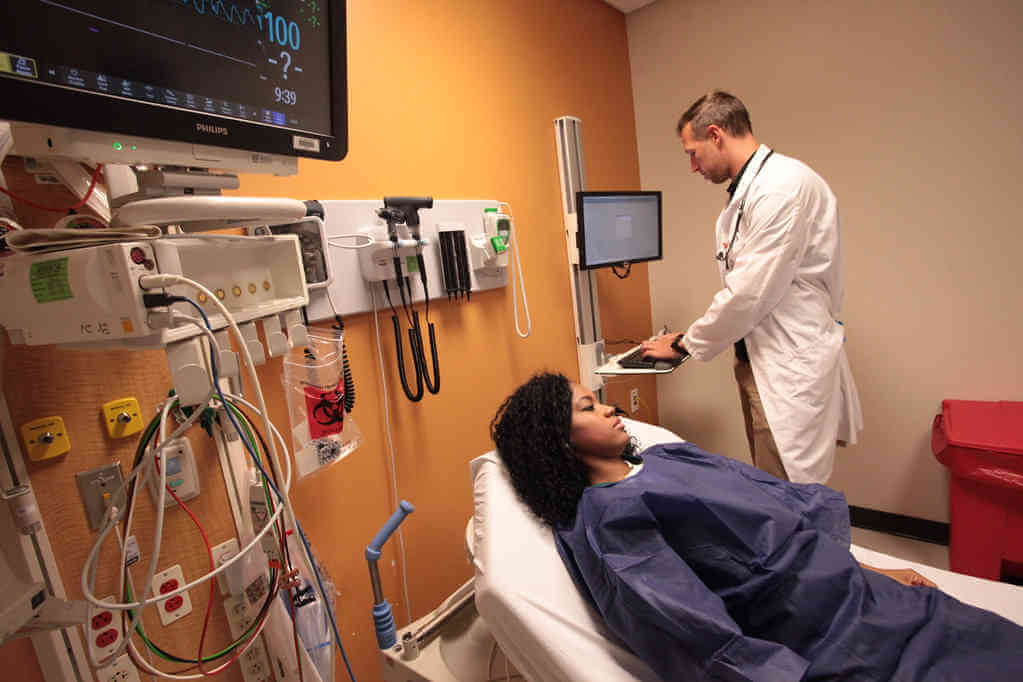A new City Council proposal would connect New Yorkers to culturally competent, community-based healthcare services through an LGBTQ-inclusive program geared towards uninsured and underinsured folks, though fully insured residents are welcome to participate.
The bill, introduced on August 14 by City Council Speaker Corey Johnson and Manhattan Councilmembers Mark Levine, Carlina Rivera, and Ben Kallos, would offer localized healthcare services in every community district. There is no cost to participate in the program, but folks would still pay for the services —including doctor visits, prescriptions, and tests — on a sliding scale based on their income.
Folks would be assigned a navigator to help coordinate healthcare and have access to doctors who would be able to provide preventative and diagnostic care. Those services would include tests, prescriptions, referrals, and chronic pain management, as well as mental health services and inpatient and outpatient hospital services.
The program would also include 24-hour access to telemedicine care. Specialty care would also be available, but a City Council spokesperson did not provide further details on that.
Furthermore, the bill stipulates that the program must include providers that serve the needs of populations like the LGBTQ community and undocumented immigrants. Considering the legislation is in its infancy, full details on which providers that would entail are not yet available.
The localized services as a whole would be offered through facilities connected to the NYC Health + Hospitals system as well as federally qualified health centers and other nonprofit medical providers. Lawmakers are touting the program’s focus on connecting New Yorkers with neighborhood healthcare services, especially in parts of the city with large populations of undocumented immigrants who have previously faced language barriers in the healthcare realm and are now seeking options that are more suitable for them.
“Healthcare is an existential issue for so many New Yorkers, and a deeply personal issue for me as an HIV-positive elected official,” Johnson said in a written statement. “Healthcare is a life or death issue, a make or break financial issue, and a peace of mind issue, and as a city we could be doing a much better job of making sure all New Yorkers have access to personalized, coordinated, culturally competent healthcare.”
The legislation would complement a separate healthcare initiative led by Mayor Bill de Blasio known as NYC Care, which is aimed at connecting hundreds of thousands of the city’s uninsured residents to healthcare options.
A City Council spokesperson noted that some of the costs for the program could be pulled from the $100 million already allocated for the mayor’s healthcare initiative. The spokesperson also said the city could shell out as much as $100 million in grants to community providers if 300,000 people participate in the City Council’s program.
The council views the program as one that would lessen the strain on city hospitals and reduce emergency room visits by prioritizing preventative care, especially in uninsured communities.
“An effective modern medical system starts with easy patient access to primary care,” said Rivera, the Chair of the Committee on Hospitals, who echoed the concerns that “far too many” New Yorkers end up resorting to emergency room visits for medical conditions due to lack of insurance. She added that the bill would “guarantee that primary care is an option for every New Yorker in every neighborhood, at a public hospital or at a community-based clinic.”
Levine, who is the chair of the City Council’s Health Committee, believes the program could provide a boost to the entire city, saying that the healthcare woes facing uninsured and underinsured folks present “dire consequences for their own health and for our city as a whole.”
“We need a primary care program for the uninsured that reaches into every neighborhood in every borough,” Levine, the City Council’s Health Committee Chair, said in a written statement. “And we need to tap the resources not just of our public hospitals but the community-based clinics that are rooted in the very immigrant communities we are seeking to reach.”



































